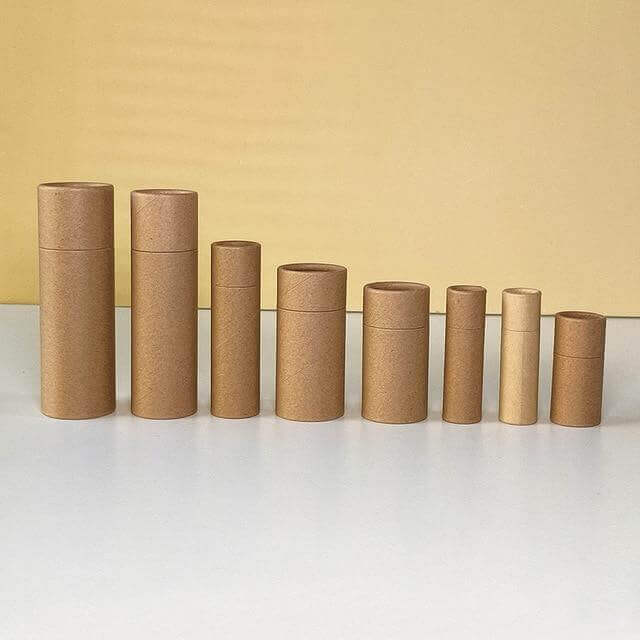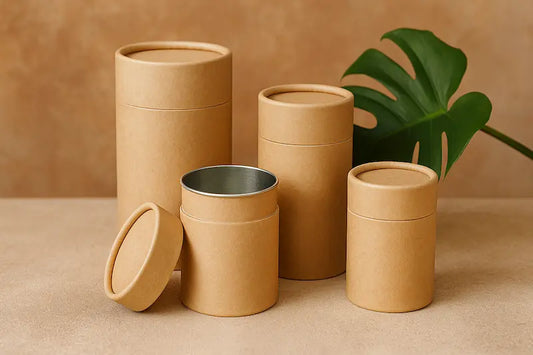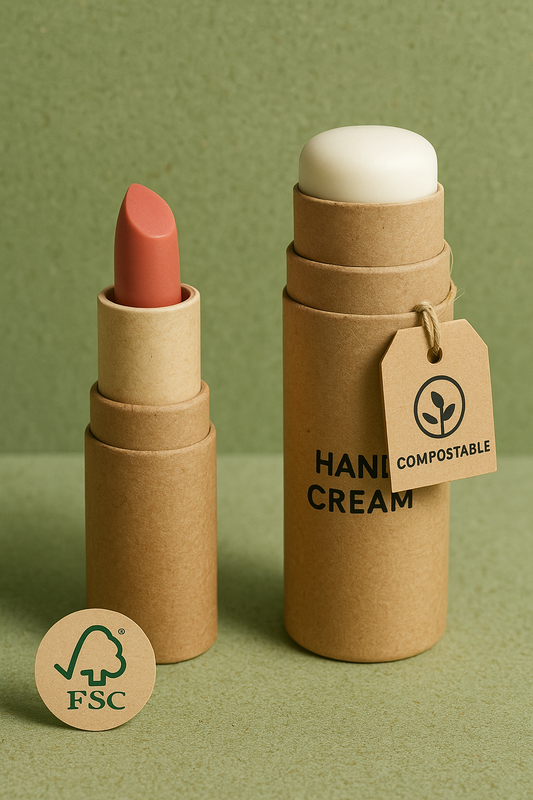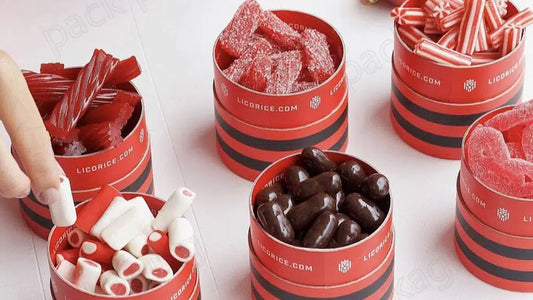What is Circular Packaging?
Partager
Circular packaging refers to a system where the lifecycle of packaging materials is extended through practices like recycling, reusing, and composting. This approach contrasts with the traditional linear model of "take-make-dispose," emphasizing a more sustainable loop that minimizes waste and resource consumption. In a circular packaging system, products are designed for durability, ease of repair, and recyclability, ensuring that materials can be used for as long as possible.
The Role of Paper Tubes in Circular Packaging:
Paper tubes, as a versatile and eco-friendly packaging solution, fit seamlessly into the circular economy model. Their recyclability and biodegradability make them an ideal choice for businesses looking to reduce their environmental footprint. By incorporating paper tubes, companies can ensure that their packaging contributes to a closed-loop system, reducing waste and promoting sustainability. The use of renewable resources in paper tube production further enhances their environmental benefits, making them a superior alternative to traditional plastic packaging.
Waste Management within a Circular Economic Model
Circular Economic Model Overview:
The circular economy aims to redefine growth by focusing on positive society-wide benefits. It involves decoupling economic activity from the consumption of finite resources and designing waste out of the system. This model encourages the continuous use of resources, creating a closed-loop system where products and materials are reused, repaired, and recycled. By adopting circular principles, we can move towards a more sustainable and resilient economy that benefits both businesses and the environment.
Waste Reduction with Paper Tubes:
Using paper tubes can significantly reduce waste as they are made from renewable resources and can be easily recycled or repurposed. Paper tubes can be broken down and remade into new products, reducing the need for virgin materials and decreasing the overall environmental impact. This process supports the circular economy by keeping materials in use and out of landfills. Furthermore, the biodegradability of paper tubes ensure that any waste that does enter the environment breaks down naturally, minimizing harm to ecosystems.
Why Do We Need Circular Packaging?
Environmental Impact:
The increasing pollution and waste generation call for immediate action to adopt more sustainable practices. Circular packaging helps in reducing the overall carbon footprint and conserving natural resources. By using paper tubes, which are biodegradable and recyclable, we can minimize the environmental impact of packaging waste, helping to protect ecosystems and reduce greenhouse gas emissions. Additionally, circular packaging reduces the demand for raw materials, thereby preserving natural habitats and biodiversity.
Economic Benefits:
Circular packaging can lead to cost savings in the long run by reducing material costs and waste management expenses. It also opens new markets and opportunities for innovative business models. Businesses that adopt circular packaging practices can gain a competitive advantage by appealing to environmentally conscious consumers and improving their sustainability credentials. The economic benefits extend beyond individual companies, contributing to a more resilient and resource-efficient economies that can better withstand market fluctuations and resource shortages.
Sustainable Packaging in a Circular Economy
Food Packaging with Paper Tubes:
Paper tubes can be used for packaging dry foods, snacks, and other consumables, providing a sustainable alternative to traditional plastic packaging. These tubes offer excellent protection for food products while being easy to recycle or compost, making them a practical choice for environmentally conscious brands. The barrier properties of paper tubes can also be enhanced with eco-friendly coatings, ensuring that the packaged food remains fresh and safe for consumption.
Product Packaging Applications:
Beyond food, paper tubes are ideal for packaging cosmetics, electronics, and various retail products, offering protection and eco-friendliness. They can be customized to fit specific product requirements, providing a durable and attractive packaging solution that aligns with circular economy principles. For example, paper tubes can be designed with compartmentalized interiors to securely hold delicate items or with unique shapes that enhance the unboxing experience, adding value for consumers while reducing environmental impact.
Circular Economy: Plastic Packaging and Non-Plastic Packaging
Challenges with Plastic Packaging:
Plastic packaging poses significant environmental challenges due to its persistence in the environment and difficulty in recycling. Most plastic waste ends up in landfills or oceans, where it can take hundreds of years to decompose, causing significant harm to wildlife and ecosystems. The production of plastic also relies heavily on fossil fuels, contributing to greenhouse gas emissions and climate change. As awareness of these issues grows, there is increasing pressure on businesses to find more sustainable packaging alternatives.
Advantages of Non-Plastic Packaging:
Paper tubes offer a viable alternative, reducing dependence on plastic and contributing to a cleaner environment. They are easier to recycle and compost, and their production typically involves fewer harmful chemicals and less energy compared to plastic. By switching to paper tubes, businesses can reduce their environmental footprint and support a more sustainable packaging industry. Additionally, non-plastic packaging can enhance brand image and appeal to consumers who prioritize sustainability in their purchasing decisions.
Ways to Advance Circular Packaging
Innovative Design:
When brands design packaging with the end-of-life in mind, ensuring materials can be easily recycled or composted, they take a significant step toward sustainability. At Esytube, we offer the services these brands need. Our paper tube packaging is crafted with sustainability at its core, featuring designs that facilitate reuse and recycling. By considering the entire lifecycle of our products, we help brands create packaging that is both practical and environmentally responsible.
Corporate Responsibility:
Encourage businesses to adopt circular packaging practices and invest in sustainable materials and technologies. The benefits of using circular packaging for businesses are manifold. It not only helps in reducing waste and conserving resources but also enhances brand reputation, attracts eco-conscious consumers, and can lead to cost savings. By choosing Esytube's paper tube packaging, businesses can demonstrate their commitment to sustainability and corporate responsibility. Our solutions enable companies to meet their sustainability goals while also benefiting from high-quality, customizable packaging that meets their specific needs.
Esytube’s Commitment
At Esytube, we specialize in creating sustainable paper tube packaging solutions that align with the principles of the circular economy. Our products are designed to be fully recyclable and biodegradable, offering businesses an eco-friendly alternative to traditional packaging. With a focus on innovation, quality, and sustainability, Esytube is committed to helping brands reduce their environmental footprint while maintaining high standards of packaging performance and aesthetics.
We invite businesses to join us in advancing circular packaging practices. Whether you are looking to transition from plastic to paper tubes or seeking innovative packaging designs that support sustainability, Esytube has the expertise and solutions you need. Visit our website, Esytube.com, to learn more about our products and how we can help you achieve your sustainability goals. Together, we can create a more sustainable future.




